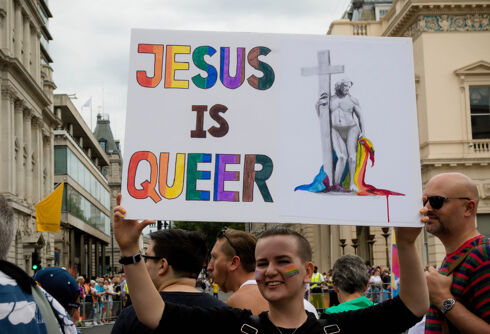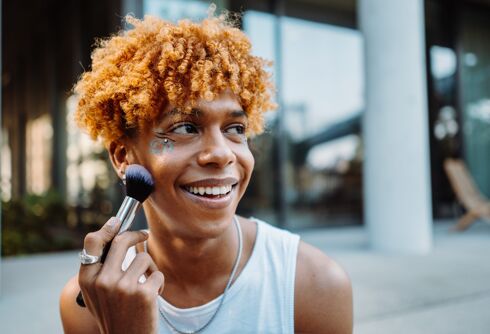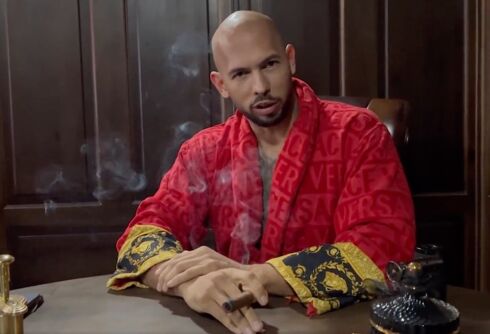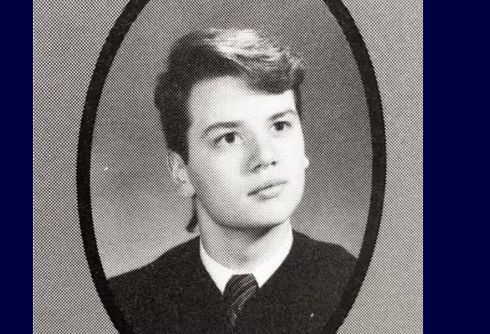
Jamaican churchgoers hold signs while attending an anti-gay rally in Kingston, Jamaica in 2013.
KINGSTON, Jamaica — LGBT people are the targets of unchecked violence and discrimination in Jamaica, frequently refused housing or employment in the Caribbean country typically described as the region’s most hostile to LGBT citizens, a leading human rights group says in a report released Tuesday.
In its 86-page report titled “Not Safe at Home,” Human Rights Watch noted that LGBT citizens in Jamaica are often driven from their communities by neighbors and sometimes even family. Some health professionals stigmatize them by casting judgment on their sexuality when they seek care. Police protection against bias and physical attacks is generally poor.
LGBT people in Jamaica “face intolerable levels of violence and cannot rely on the police,” Graeme Reid, the organization’s LGBT rights director, said in a release. “The authorities from the prime minister on down need to call a halt to the violence and discrimination, prosecute anyone responsible, and get homophobic laws off the books.”
The New York-based rights group called on the Jamaican government to strike down the anti-sodomy law that criminalizes anal sex and another that prohibits “acts of gross indecency” between men. While prosecution is rare under Jamaica’s 1864 law making sexual intimacy between men a crime, the advocacy organization says it gives “social sanction to prejudice and helps to create a context in which hostility and violence is directed against LGBT people.”
Never Miss a Beat
Subscribe to our newsletter to stay ahead of the latest LGBTQ+ political news and insights.
The Human Rights Watch report was the result of five weeks of research conducted last year in Jamaica. It said it interviewed various people, including 71 LGBT citizens – 44 of whom reported being victims of “some form of violence based on their sexual orientation or gender identity.” Many LGBT people on the island “live in constant fear,” the rights group said.
Gay activists on the island have long called for the anti-sodomy law to be repealed and said they are still discussing the rights group’s assertions and recommendations. Jamaica’s information minister did not respond to an email seeking comment.
Dane Lewis, executive director of the advocacy group Jamaica Forum for Lesbians, All-Sexuals & Gays, has said the Caribbean island of 2.7 million people is seeing an increase in “pockets of tolerance,” but homophobia remains culturally ingrained.
Human Rights Watch did note that there has been a “groundswell of change in Jamaica in the way it is responding to human rights abuses against LGBT people.” It praised Prime Minister Portia Simpson Miller and other government leaders for constructive statements about LGBT rights.
But many people in the largely Christian country consider homosexuality to be sinful, and believe the gay rights lobby is a perversion from abroad. Even among those who tolerate homosexuality, some people think it should not be advertised and believe activists have exaggerated reports of violence.
A recent poll commissioned by the Jamaica Gleaner newspaper suggested that 91 percent of Jamaicans are opposed to repealing the anti-sodomy law. The survey of 1,208 Jamaicans had a margin of error of 3 percent.
Last year, a transgender teen named Dwayne Jones was killed by a mob at a crowded street dance outside Montego Bay and the slaying remains unsolved.
In late August, a young Jamaican gay rights activist who brought an unprecedented legal challenge to the Caribbean island’s anti-sodomy law withdrew his claim after growing fearful about possible violent reprisals. When the legal challenge was initiated last year, several pastors led crowded revival meetings in Jamaica’s two biggest cities to counter what they called a growing mainstream acceptance of homosexuality.
Jamaica is among numerous English-speaking Caribbean nations with anti-sodomy laws. Public health officials say the laws criminalizing gay sex have fueled the region’s HIV epidemic by making it hard to effectively reach men who have sex with men, a population that generally faces elevated levels of HIV infection.
This material may not be published, broadcast, rewritten, or redistributed.













